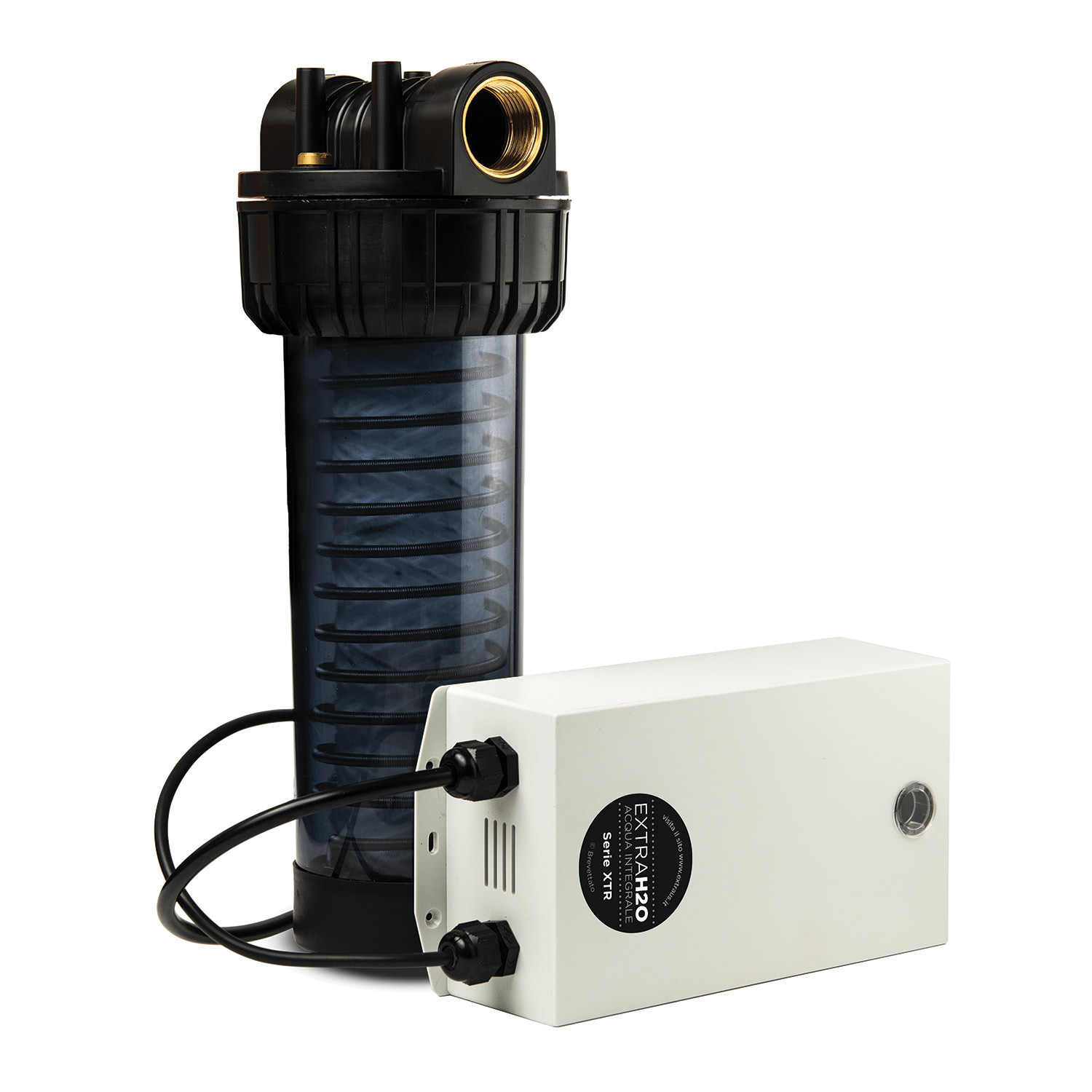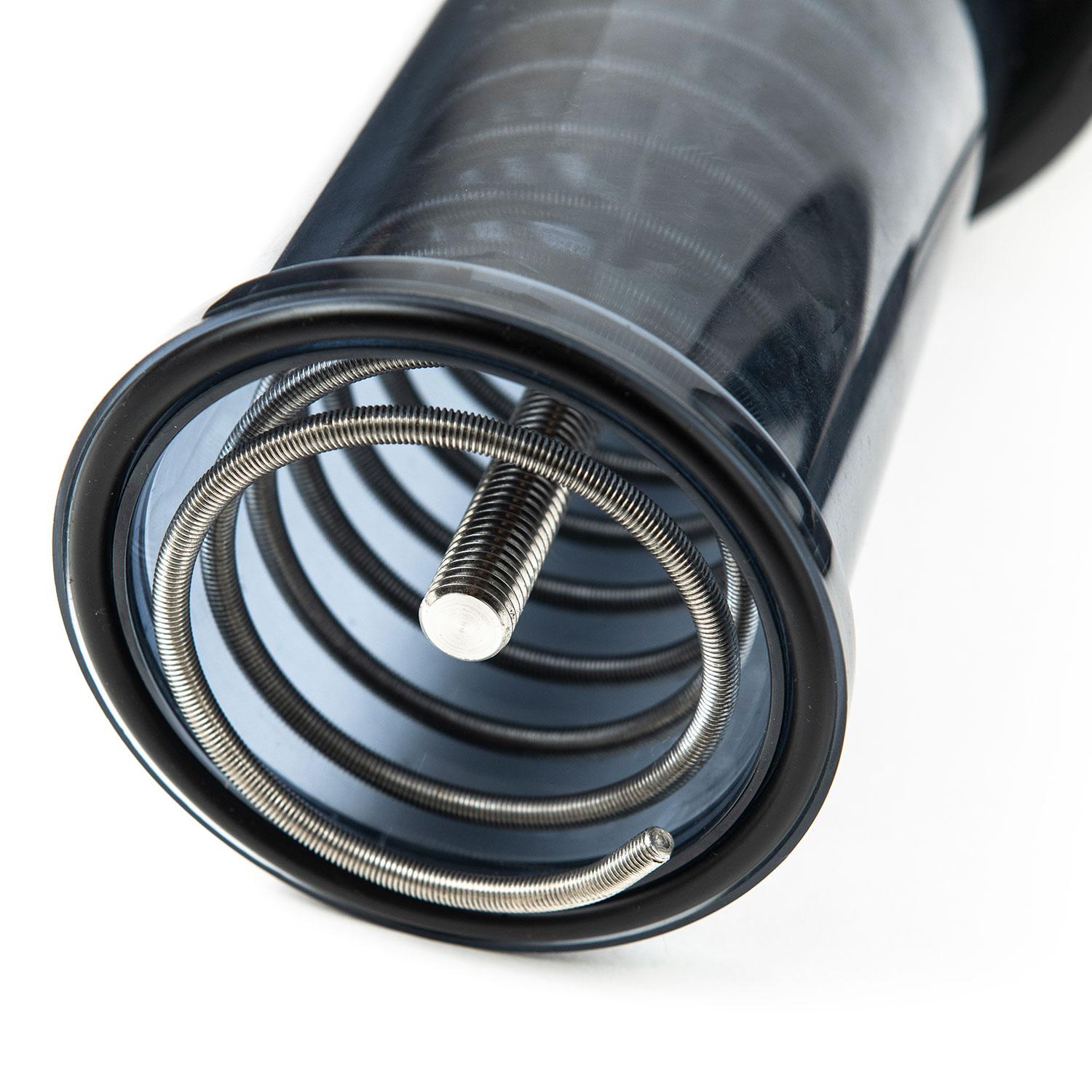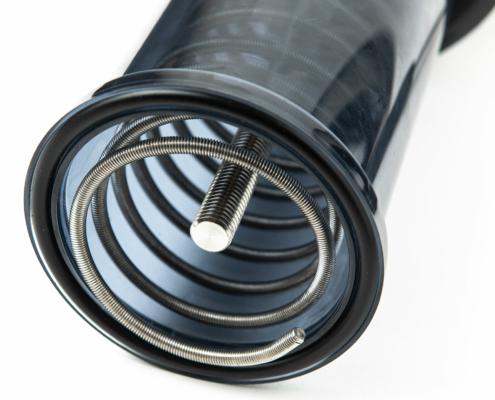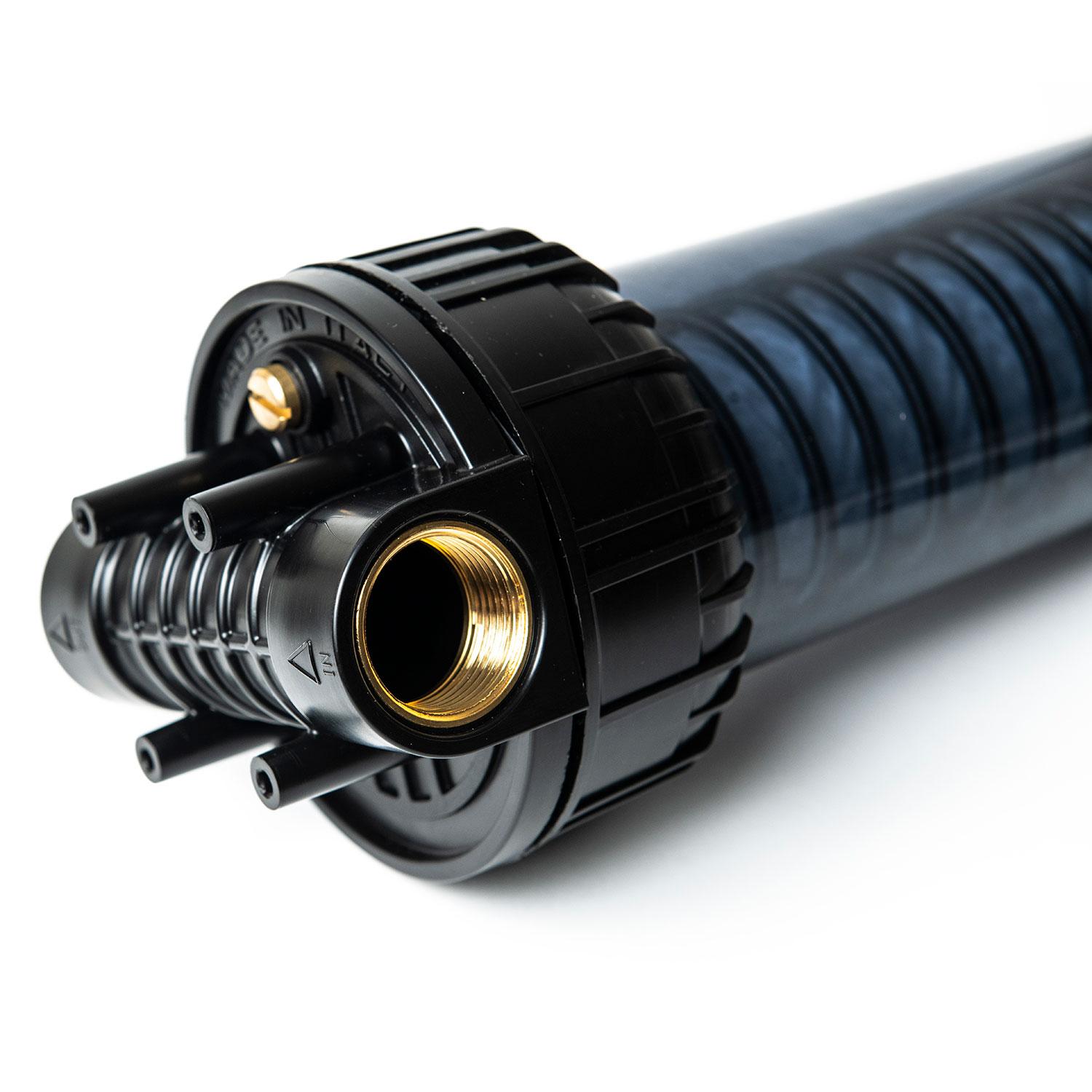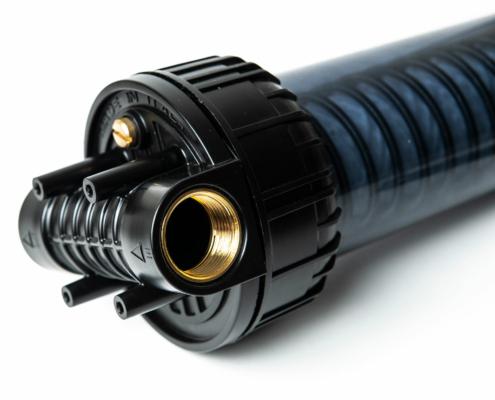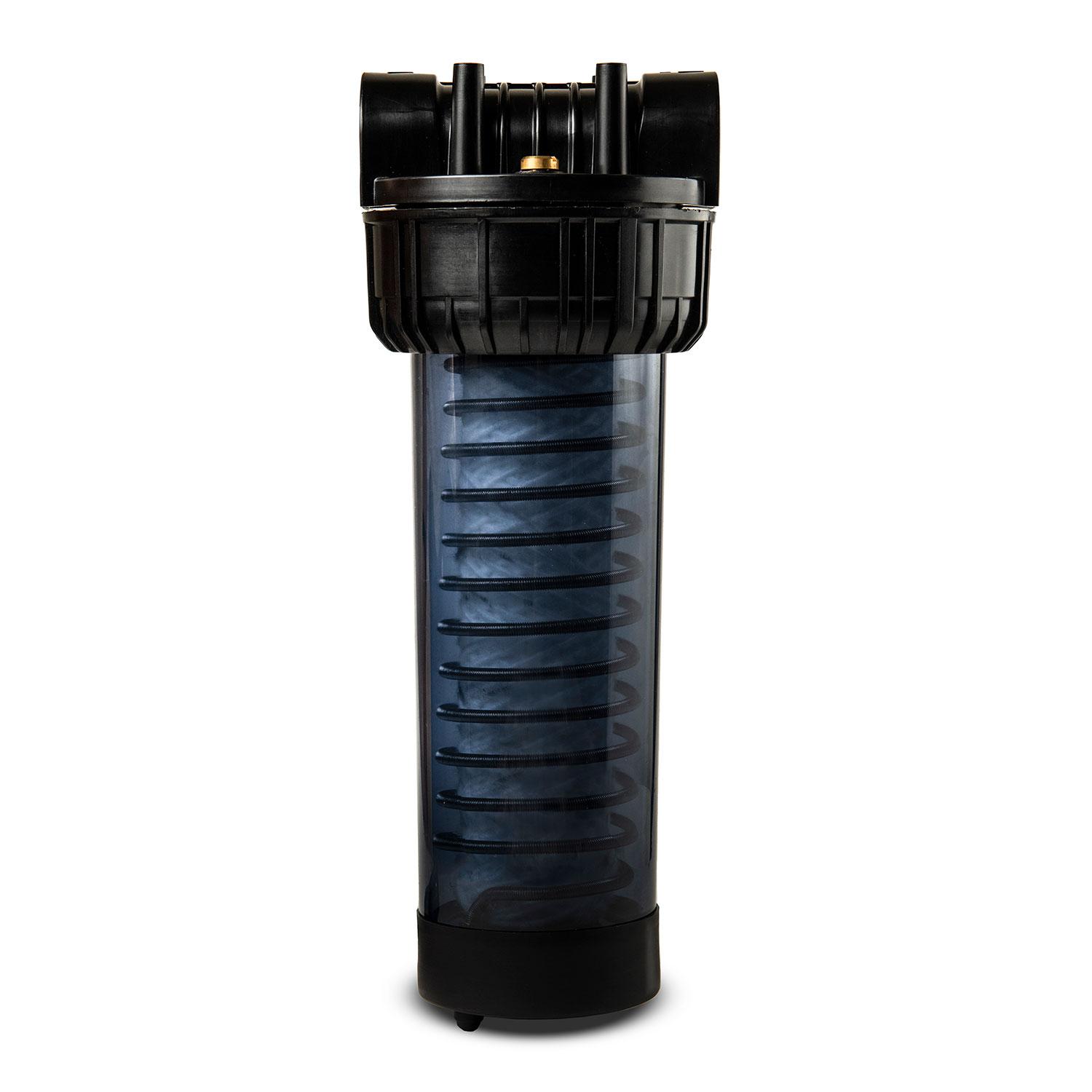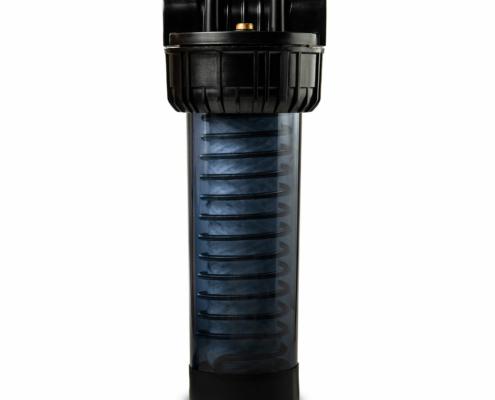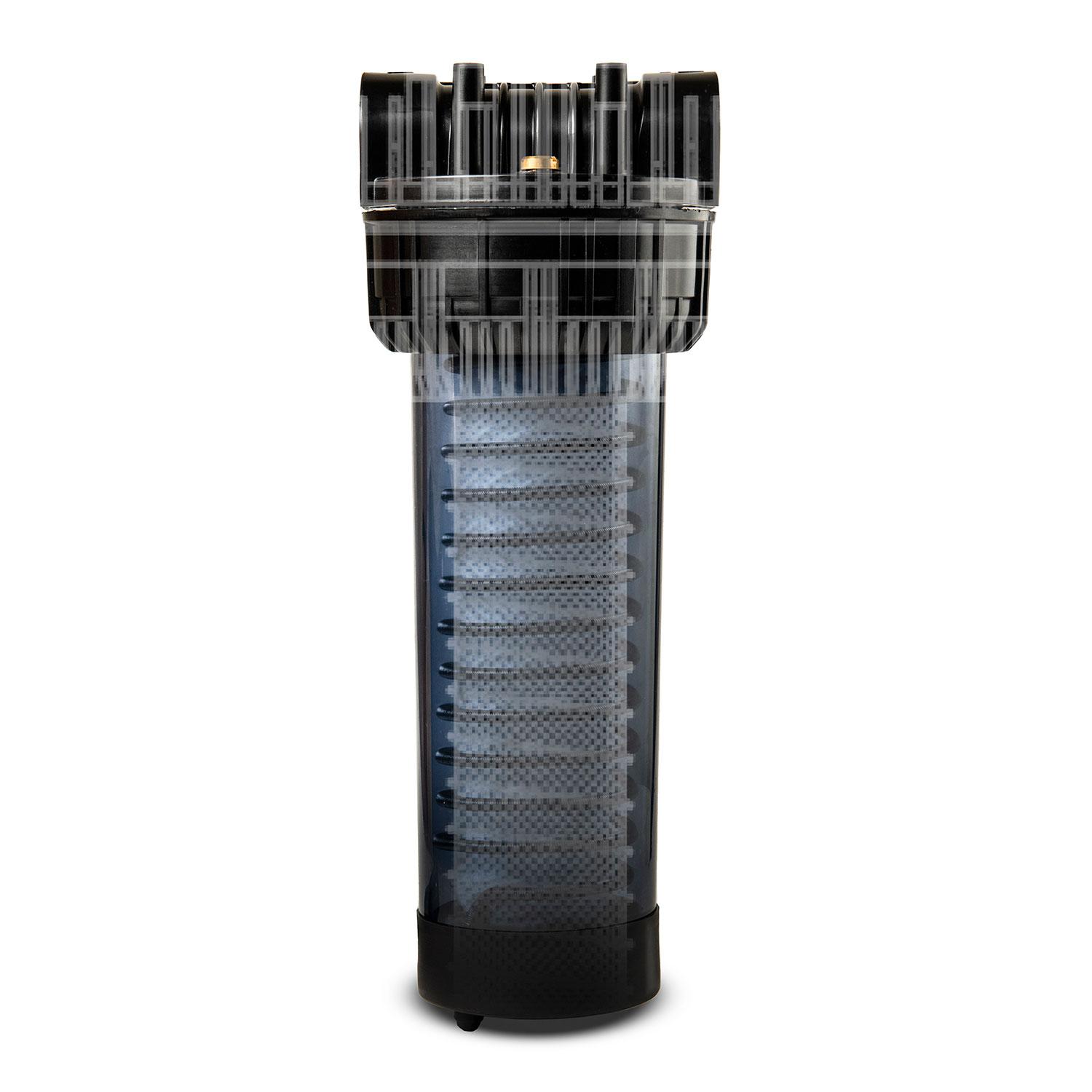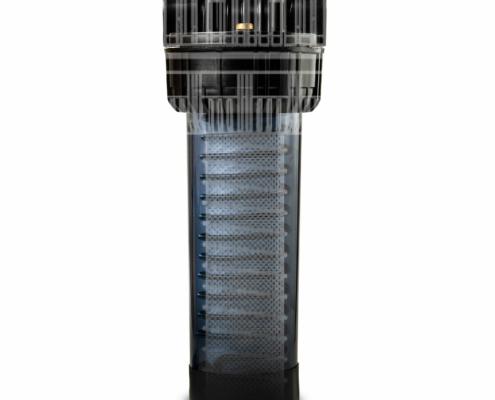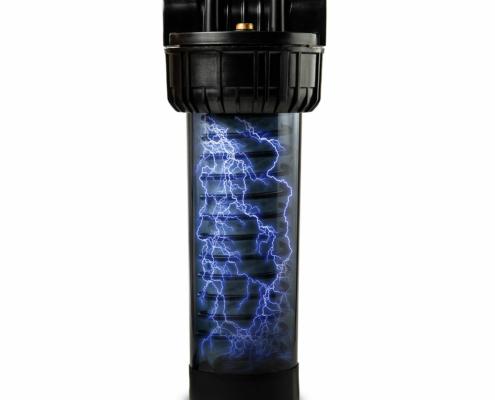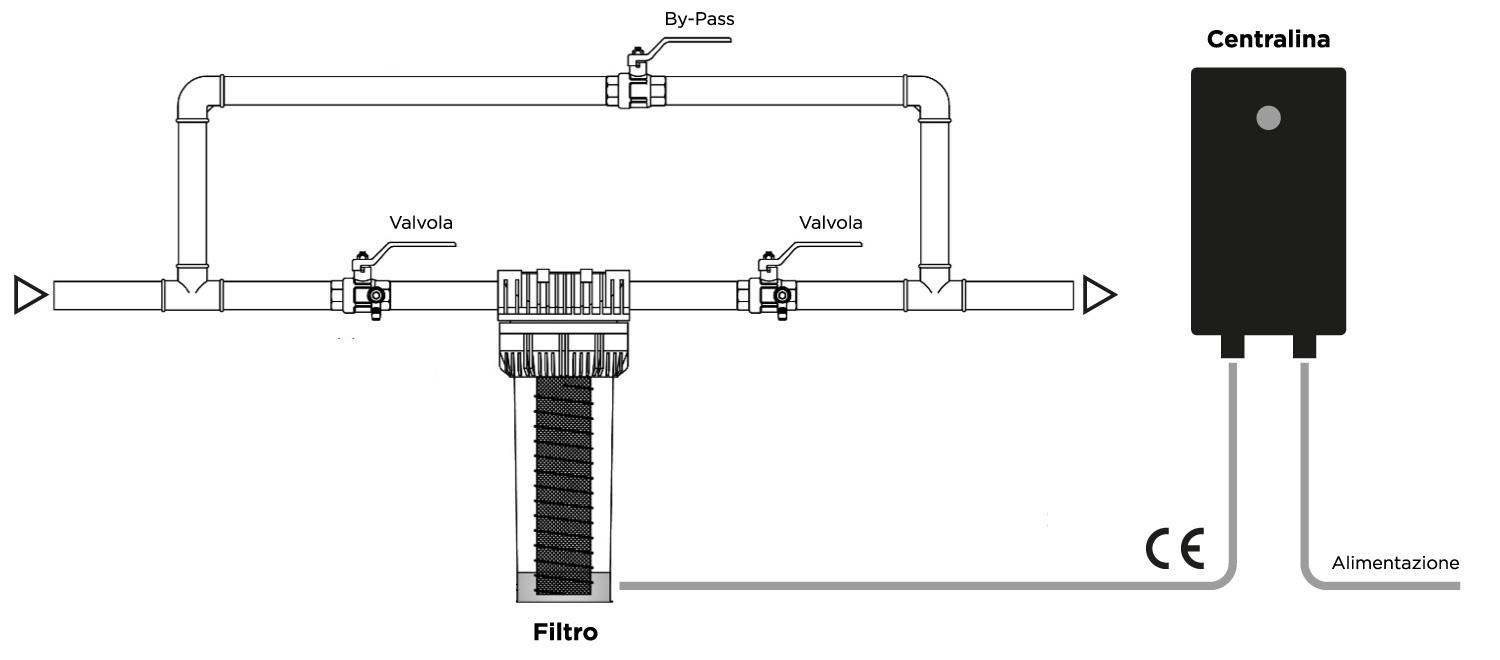ExtraH2O XTR-K20
ExtraH2O Integral Water is a technologically advanced and patented system, specifically designed for optimizing the quality of drinking water, both in civil and industrial contexts. The distinction of this system lies in its antibacterial and anti-scaling properties, attributable to the use of Pulsed Electric Fields (PEF) Technology. This technological solution allows ExtraH2O to provide water of a superior quality level.
The ExtraH2O system consists of two fundamental parts: an electronic control unit and a hydraulic unit, each with specific functions.
The electronic control unit, equipped with a microprocessor, measures the electrical conductivity of the water to be treated, determining the intensity of the high frequency electric field necessary to induce the formation of Aragonite nano-crystals.
This control unit adapts the system’s intervention based on the saline properties of the water under examination, ensuring a targeted and customized action.
Operating Principle and Use
Operationally, ExtraH2O is designed to preserve a wide range of hydronic circuits – including those dedicated to water for sanitary use, both hot and cold, and those for water intended for technical and technological purposes – by preventing both bacterial proliferation and the accumulation of limestone deposits.
Thanks to the emission of a variable high-frequency electric field, the system induces two significant effects: on one hand, it prevents the precipitation of calcium carbonate in the crystalline form of Calcite, instead promoting its permanence in an amorphous and more water-soluble form; on the other, it promotes the formation of Aragonite nano-crystals which, due to their structure, do not aggregate into deposits, but are rather carried away by the water flow.
This process is both ecological and natural, respecting the integrity of the chemical composition of the treated water and preserving the concentration of natural salts.
ExtraH2O can be used in a multitude of sectors, wherever it is necessary to prevent bacterial proliferation and the formation of limestone deposits without altering the chemical properties of the water.
The transformation into Aragonite or amorphous calcite crystals, which do not lead to the formation of deposits, maintains its stability even when the water is subjected to heating.
This feature makes this system particularly effective in various contexts, including storage tanks and systems for the immediate generation of hot water.


